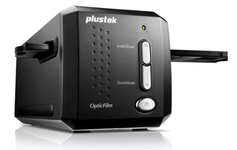Outdoor Writer
WKR
You guys could be in big trouble since I could have an endless supply of NEW images to post.
I'm about to pull the trigger on this scanner. It's $399 on Ebay or Amazon. The one feature that sounds really good is the IR function that automatically gets rid of dust & scratches. All the reviews I've read have been good to excellent.
Anyone here ever use this specific scanner?

I'm about to pull the trigger on this scanner. It's $399 on Ebay or Amazon. The one feature that sounds really good is the IR function that automatically gets rid of dust & scratches. All the reviews I've read have been good to excellent.
Anyone here ever use this specific scanner?

